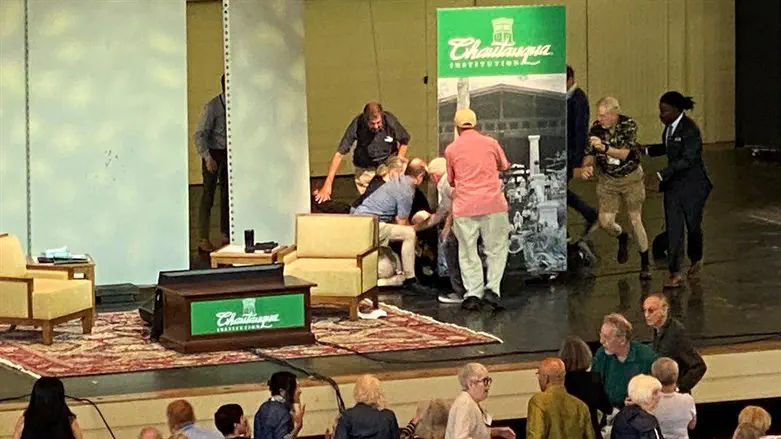
The man accused of stabbing novelist Salman Rushdie last week in western New York pleaded not guilty to second-degree attempted murder and assault charges on Thursday and was held without bail, Reuters reported.
Hadi Matar, 24, is accused of wounding Rushdie, 75, on Friday just before the "The Satanic Verses" author was to deliver a lecture on stage at an educational retreat near Lake Erie.
Matar was arraigned at the Chautauqua County Courthouse on an indictment returned earlier in the day by a grand jury that charged him with one count of second-degree attempted murder, which carries a maximum sentence of 25 years in prison, and one count of second-degree assault.
Judge David Foley ordered Matar to have no contact with Rushdie and agreed to a request by his defense lawyer to issue a temporary gag order barring the parties from discussing the case in the media. He said he would consider the defense's request to release Matar on bail.
Matar's next court appearance was scheduled for Sept. 22.
Eyewitnesses said that Rushdie was stabbed 10 to 15 times during Friday’s attack. Rushdie fell to the floor immediately, as the attacker was restrained, they added.
Rushdie, who was taken to hospital by helicopter and treated for stab wounds to his liver, arm, and one eye, may lose the use of one of his eyes.
Speaking on Wednesday to The New York Post, Matar said he didn’t think the author would survive.
The 24-year-old wouldn’t say if he was inspired by the late Iranian supreme leader Ayatollah Ruhollah Khomeini issuing a fatwa, or edict, calling for Rushdie’s death in 1989.
“I respect the ayatollah. I think he’s a great person. That’s as far as I will say about that,” Matar replied, noting he only “read a couple pages” of Rushdie’s controversial novel.
Rushdie since 1989 has been the target of an Iranian fatwa calling for his murder for allegedly blaspheming Islam and its prophet Mohammed in his book "The Satanic Verses."
In 2012, an Iranian foundation added another $500,000 to the reward for killing Rushdie, raising the total bounty for his death to $3.3 million.
Rushdie spent a decade in hiding after Iran's spiritual leader, Ayatollah Ruhollah Khomeini, issued the 1989 fatwa against him for his book.
Although Iran's foreign ministry in 1998 assured Britain that Iran would do nothing to implement the fatwa, current supreme leader Ayatollah Ali Khamenei in January 2005 reaffirmed that Rushdie was considered an apostate whose murder was authorized under Islam.

